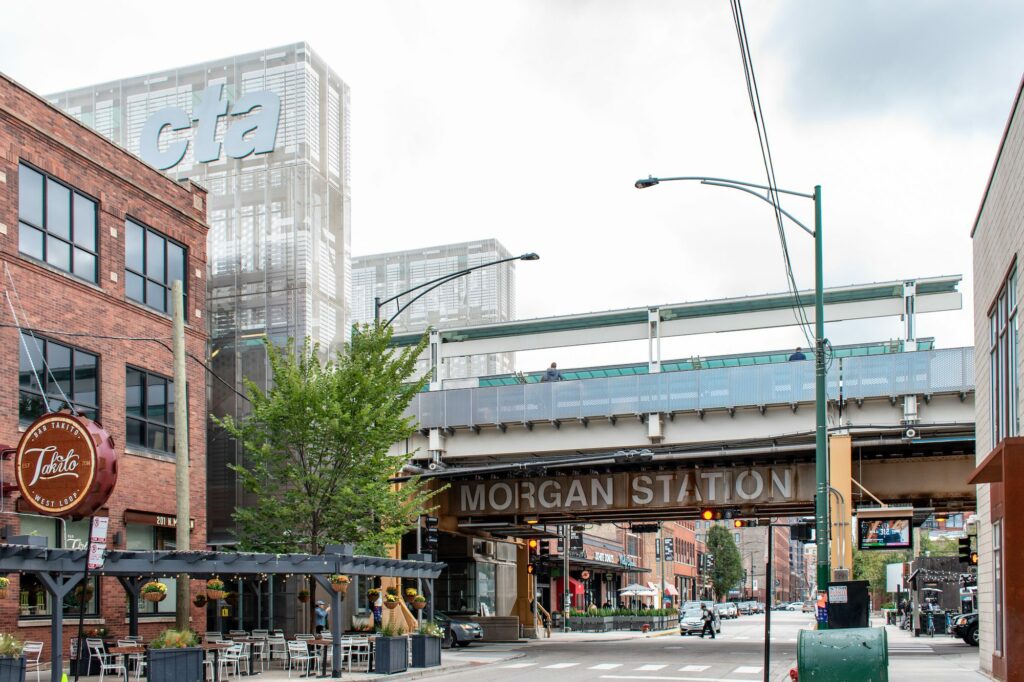Is It Expensive to Live in Chicago?

If you’ve considered making a move to the Windy City, you’ve likely wondered, “is it expensive to live in Chicago?”
Find out how much it costs to live in Chicago and how it compares to other major cities.
The Costs of Living in Chicago
There are multiple variables to consider when determining how expensive Chicago living really is. While costs fluctuate depending on the time and a person’s living habits, we want to take a look at the average costs that Chicago residents can expect:
- Rent: This cost can fluctuate drastically depending on the size, location, and quality of your apartment. However, based on all of the averages, a 1-bedroom runs about $2,300, while a 2-bedroom unit costs around $3,600.
- Utilities: The most basic utilities typically include electricity, heating, cooling, water, and garbage. For a 915-square-foot apartment, all of these utilities combined cost approximately $156 monthly. The internet is also a common utility in Chicago, and the annual bill for this service comes to $60 a month.
- Groceries: Depending on the size of your family and your eating habits, this number can differ dramatically, but the average cost of food for a Chicagoan is $299 per month.
While there are some of the most obvious living costs, we’ll touch on some of the other expenses worth noting as you consider a move to Chicago.
How the Chicago Cost of Living Compares to Other Cities
While city living typically comes at a price, your money will likely stretch further living in Chicago than it will in some of the other popular large cities.
Despite its popularity and advantages, Chicago is currently the 47th-highest city to live in the country. This may come as a shock given the fact that Chicago is America’s third-largest metropolis.
The other largest cities, New York and Los Angeles rank significantly higher in terms of cost of living. New York takes #12 while L.A. follows at #13.
Houston, the fourth most populous U.S. city boasts a lower cost of living than Chicago, ranked as #51 most expensive city.
If you’re trying to avoid living in cities known for high living costs, San Francisco and D.C. may not be the places for you.
The Costs of Moving to Chicago
As you’re counting the costs of living in the Windy City, you also want to account for moving expenses. Transitioning cities, especially cross-country, may end up costing you more than anticipated, so it’s crucial not to overlook any potential fees.
There are a few variables that you want to consider if you are considering moving to the great city of Chicago.
For starters, your moving budget will vary drastically depending on whether you’re moving locally or from another state.
If you’re moving long-distance, which is often defined by moving 100 miles or more, you can expect to spend around $2,200 to $5,700 on services, unless you have a company covering these costs. Obviously, the shorter the distance and the fewer items you have to move, the more your bill will shrink.
Moving locally is not only less costly but there is also often less time pressure. You may be able to gather a group of friends and move items gradually on your own timeline. If you do need the support of professional movers, you’re looking at spending around $800 and $2,500. Also, keep in mind that if you don’t need a ton of extra support, you may want to find movers who charge by the hour. Then you’re most likely looking at $25-$50 an hour.
While transporting items in your own car does cut out additional fees that come with movers or truck rentals, keep in mind that you will be paying for gas and putting miles on your vehicle. So, it’s worth considering what makes the most sense in your scenario.
When adding up expected moving costs, don’t forget the materials involved in transporting your stuff either. To safely and conveniently get your belongings from point A to point B, we suggest investing in an apartment moving kit from Home Depot. A single kit includes enough boxes, tape, and wrapping paper for one person and one small living space.
The Chicago Inflation Rate
Inflation accounts for the overall increase in costs. When inflation rates rise, so does the cost of living.
Recently, it was announced that Chicago’s inflation rate hit a 40-year high. At 9.1, the Windy City hadn’t seen inflation increase that much since 1981.
This bump in costs has been felt across many of the Chicago industries. The price tags on gas, groceries and housing costs have risen, and consumer pockets are feeling the weight of this increase.
The real estate market has certainly not been immune to the inflation rate. It has driven slower home sales, rising mortgage rates and rent hikes.
While inflation has been climbing nationally, each city has experienced varying degrees of this increase. For example, last month, Chicago’s average inflation rate sat around 8.8%, while some cities hit double-digits. Tampa, Florida’s average inflation rate that month was 11.2%.
If and when you decide to find a new home, it’s worth understanding where inflation is at that point in time and how it may affect your rent along with other living expenses.
Gas Costs
Fuel is an important variable to budget for only if you plan on driving in Chicago. So, if you intend on taking your car or purchasing a car in the city, then you certainly want insight into the Chicago gas prices.
As mentioned above, inflation has taken a hit on gas prices in Chicago and all over the country. In mid-June the gas prices hit a record high, with an average of $5.01 per gallon. Some stations were selling gas for as high as $6.50 per gallon,
While no one wants to see this number at the pump, the good news is that these prices seem to be dropping. Currently, you can expect to pay around $5.48 a gallon filling up for gas in the city of Chicago.
That is still higher than Chicagoans are used to paying. So, if you’re on the fence about having a car in the city, consider what your fuel may cost you.
Bus Fare Costs
Public transit is undoubtedly one of the many perks of Chicago living. This system offers plenty of routes and options to get around, as well as in and out of the city without a car. It can save you money on gas, insurance, and parking.
So, if you opt-out of owning a car while living in Chicago, you’ll want to understand what you need to budget for public transportation.
While the “L”, Chicago’s train system, is a fantastic mode of transit, buses actually trump trains in daily ridership according to the Chicago Transit Authority (CTA).
So, how much should you expect to dish out for bus fare? Well, the answer depends largely on the frequency in which you ride. You will want to look at the different bus pass options and purchase the one that makes sense given your commute schedule.
These are the current bus passes available:
- Regular, one-way bus fare, which includes transfers between multiple buses: $2.25
- 1-day CTA pass, which includes both ‘L’ trains and buses: $5
- 7-day CTA pass, which includes both ‘L’ trains and buses: $20
- Monthly unlimited CTA pass, which includes both ‘L’ trains and buses: $75
Also, be sure to check with your company prior to purchasing a pass. Many employers offer pre-tax or subsidized options for your commute. Students, seniors, veterans and other groups qualify for reduced fares as well.
The costs of living can add up quickly, but comparatively, Chicago is certainly not the most expensive city out there. There are also many ways to keep your costs down and spend wisely.
Rather than asking “is it expensive to live in Chicago?,” the better question may be, “how can I make my budget work in Chicago?”
To help you answer this question, and to find your dream home, connect with one of our experienced brokers today or read more about our process by clicking the button below!

Search The Blog
Most Popular

10 Companies Headquartered in Chicago

How Do Chicago Apartment Finders Get Paid?

Our Expert Apartment Finding Tips Will Answer Your Toughest Questions
About Us
Up Next

How to Find a Roommate in Chicago: A Step-by-Step Guide
There are many reasons to live with a roommate: maybe you’re an extrovert who wants some company at home, or perhaps you’re hoping to […]

What Is the Average Chicago Bus Fare in 2022?
When you think about commuting in Chicago, you probably visualize ‘L’ trains thundering through the Loop; and while this mode of transportation is part […]

What Are Average Gas Costs in Chicago in 2022?
If you drive or pay attention to gas prices, you’ve likely noticed that these numbers have climbed over recent months. Knowing how those changes […]

How Much Would It Cost to Move to Chicago?
Moving to a new city is a big step, both for your life and for your budget. In addition to adjusting your cost of […]
